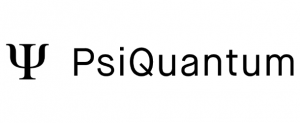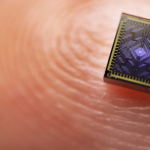Quantum News Briefs June 19: Is a ‘ChaptGPT Moment’ coming for quantum computing? PsiQuantum’s latest quantum computing research sheds light on Elliptic Curve Cryptography vulnerabilities, Applications of quantum sensors in everyday life + MORE

Quantum News Briefs June 19: Is a ‘ChaptGPT Moment’ coming for quantum computing? PsiQuantum’s latest quantum computing research sheds light on Elliptic Curve Cryptography vulnerabilities, Applications of quantum sensors in everyday life + MORE.
Is a ‘ChaptGPT Moment’ coming for quantum computing?
Will all the buzz surrounding new artificial intelligence applications like ChatGPT soon be spreading to other tech areas like quantum computing, asks Don Lohrmann in his July 18 article in GovernmentTechnology. Quantum News Briefs summarizes.
The Independent reported last week: Major breakthrough could soon allow us to actually use quantum computers, scientists say. Here’s a portion of that story: “For years, quantum computing experts have been hopeful that the technology could allow for entirely new kinds of calculations, which might be useful across battery research, medicines and more. But the current versions are given to a host of problems, including the fact that they are prone to errors, which disturb the quantum bits.
“New research from IBM showed that those errors could be mitigated, however, and a quantum computer could be used in ways that a classical computer could not. As such, the results ‘herald further opportunities for quantum processors to emulate physical systems that are far beyond the reach of conventional computers,’ scientists away from the research say.”
Meanwhile, also this past week, CNET reported that Intel Enters the Quantum Computing Horse Race With 12-Qubit Chip, writing: “Intel has built a quantum processor called Tunnel Falls that it will offer to research labs hoping to make the revolutionary computing technology practical. Intel, unlike most of its rivals, makes its qubits from individual electrons housed in computer chips that are cousins to those that power millions of PCs. The company is lagging behind. Rivals like IBM, Google, Quantinuum and IonQ have been offering quantum computers for years, but Intel believes tying its fortunes to conventional chip technology will ultimately enable faster progress.
This topic is of special interest to cybersecurity professionals, since many experts believe that the cybersecurity industry will be dramatically altered once most current encryption technologies are defeated with quantum computers.
Yes, there are many moving parts in these new technologies, so knowing when we will have a “ChaptGPT moment” for quantum computing is almost impossible to predict. And yet, Q-Day is coming — likely in this decade, and the U.S. faces global competition on these topics. Click here to read original article in-entirety.
PsiQuantum’s latest quantum computing research sheds light on Elliptic Curve Cryptography vulnerabilities
 PsiQuantum has announced in a new publication, a thorough resource count for how large a quantum computer is needed to impact a commonly used cryptosystem – namely Elliptic Curve Cryptography (ECC) – considering a novel fault-tolerant quantum computing architecture that the company recently introduced.
PsiQuantum has announced in a new publication, a thorough resource count for how large a quantum computer is needed to impact a commonly used cryptosystem – namely Elliptic Curve Cryptography (ECC) – considering a novel fault-tolerant quantum computing architecture that the company recently introduced.
This active volume architecture leverages long-range connections within the quantum computer and results in a 700x reduction in the computational resource requirements for breaking ECC keys relative to state-of-the-art quantum algorithms. This is also orders of magnitude less time to compute than the billions of years required by conventional computers to perform the equivalent task for a 256-bit ECC key.
Secure digital communications, which underpin our modern use of the internet, rests on the success of public-key cryptographic systems. These cryptographic systems work by allowing a user to provide a public key, with which anyone can securely encode messages to them. These messages can then only be decoded with a secret private key held by the user. These keys for encoding and decoding are built from mathematical operations which are easy to apply (for the encoding), but hard to reverse (for the decoding). The difficulty of the decoding relies on the fact that reversing these mathematical operations is an impractically time-consuming task for conventional computers.
Two prominent such schemes are RSA and elliptic curve cryptography (ECC). Both RSA and ECC keys could be easily broken using large-scale quantum computers. Algorithms have been discovered for quantum computers that can, unlike conventional computers, efficiently reverse the mathematical operations at the heart of RSA and ECC.
In this paper, PsiQuantum uncovered architecture-independent improvements to existing ECC quantum algorithms that reduce the number of gates required for breaking ECC keys by up to 80%. The team also conducted a resource estimate for implementing ECC quantum algorithms using PsiQuantum’s newly unveiled active volume architecture technique which led to a reduction in the number of quantum operations needed to crack an ECC key by up to 700x.
The active volume compilation technique is especially applicable to photonic architectures, like that of PsiQuantum’s. This is because the technique relies on the ability to have long-range connections within the quantum computer and currently only photonic architectures have this feature. Unlike matter-based qubits such as ion traps or superconducting qubits, photons have the ability to be easily non-locally connected using conventional optical fiber, as widely used in the telecommunications industry.
Click here to read original article in-entirety on PsiQuantum site.
Applications of quantum sensors in everyday life
 Quantum sensors, a cutting-edge technology that has the potential to revolutionize our daily lives, are making waves in various industries.Quantum News Briefs summarizes June 17 article in CityLife.
Quantum sensors, a cutting-edge technology that has the potential to revolutionize our daily lives, are making waves in various industries.Quantum News Briefs summarizes June 17 article in CityLife.
One of the most promising applications of quantum sensors is in the field of navigation. Quantum sensors use the principles of quantum mechanics to measure the Earth’s gravitational field, allowing for precise navigation without the need for external signals. This technology could revolutionize the way we navigate our world, making it possible to accurately track the position of vehicles, ships, and even individuals in real-time, regardless of their location or surroundings.
Another area where quantum sensors are expected to make a significant impact is in communication. Quantum communication systems use the principles of quantum mechanics to transmit information securely and efficiently. Quantum sensors can be used to detect and measure the properties of individual photons, enabling the development of ultra-secure communication networks that are immune to eavesdropping and hacking. This technology could have a profound effect on the way we communicate.
Healthcare is another industry that stands to benefit greatly from the advancements in quantum sensor technology. Quantum sensors can be used to detect and measure extremely small changes in biological systems, such as the presence of specific molecules or the activity of individual cells. This could lead to the development of new diagnostic tools and therapies that are more accurate and less invasive than current methods.
Environmental monitoring is another area where quantum sensors could have a significant impact. These sensors can be used to detect and measure minute changes in environmental conditions, such as temperature, humidity, and air quality. This could lead to the development of more accurate and efficient monitoring systems For example, quantum sensors could be used to track the movement of pollutants in the air or water, allowing for more effective pollution control and cleanup efforts. Click here to read original article with extensive examples of future uses of quantum sensors.
Distinguished Visiting Fellow Paul Dabbar’s testimony before U.S. House: “Advancing American leadership in quantum technology”
 On June 6, 2023, Distinguished Visiting Fellow Paul Dabbar testified before the U.S. House Science, Space, and Technology Committee on advancing American leadership in Quantum technology. Quantum News Briefs summarizes Dabbar’s suggestions for consideration in the second NQI Act and how to build on successes:; click here for a PDF of his complete speech.
On June 6, 2023, Distinguished Visiting Fellow Paul Dabbar testified before the U.S. House Science, Space, and Technology Committee on advancing American leadership in Quantum technology. Quantum News Briefs summarizes Dabbar’s suggestions for consideration in the second NQI Act and how to build on successes:; click here for a PDF of his complete speech.
- Maintain core research programs and the five NQI Research Centers, adding funding to advance research;
- Authorize new programs that direct steps to deployment of first usable quantum computing, networking and sensing;
- Authorize a Quantum Centric HPC program. Authorize DOE to start a $200 million p.a. post-Exascale computing program that will incorporate quantum in the architecture. The NQI should build on the momentum from announcement by IBM, UChicago and two DOE labs to build a 100,000 qubit computer;
- A joint DOE/NASA quantum networking satellite and ground stations program connected to the terrestrial quantum networks authorized in CHIPS and Science Act. The U.S. is quite behind China on quantum satellite efforts;
- Direct DOE Science to scale existing Helium-3 production at Savannah River to support science and commercial uses;
- Create a new quantum foundry and instrumentation infrastructure program; and
- Authorize that funding is allowed for joint programs with allied nations.
Dabbar also urged how to build on NQI’s successes:
- We need to bridge the gap between research, quantum products, and users, including for computational discovery and applications like energy;
- While still advancing science, it is imperative to support first generation applications to deploy, including private companies’ quantum computers, an enhanced QUEST program, and network systems;
- Stand up a program to design, procure and deploy at the national labs first quantum centric HPC’s and large area quantum networks; and
- Deploy a U.S. quantum communications satellite.
Click here to read IQT News June 8 coverage of House hearing. An archived video of the hearing is available here.
Sandra K. Helsel, Ph.D. has been researching and reporting on frontier technologies since 1990. She has her Ph.D. from the University of Arizona.






















